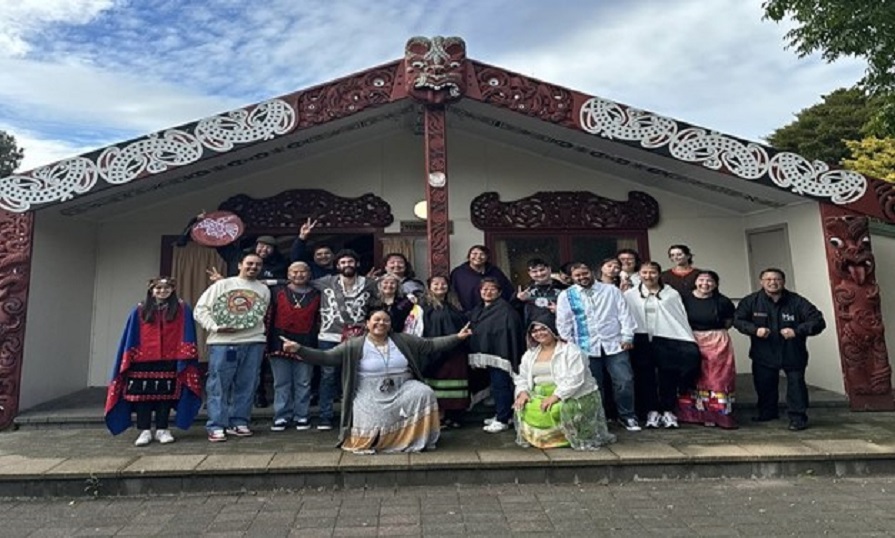Ethan Paul's Story

As a first-year student in the Mi'kmaw Early Childhood Education program, my visit to Aotearoa (New Zealand) was a transformative experience that deepened my understanding of global Indigenous solidarity and the power of language revitalization. From the moment we were greeted with a powhiri, a traditional Maori ceremony welcoming people onto a marae, I felt a profound connection to the place and its people.
Staying on the University of Waikato campus in a marae was both fascinating and unique. Living in a communal space allowed us to bond quickly, creating a sense of unity and shared purpose. The marae's interior, adorned with intricate carvings of deities and vibrant paintings filled with ancestral stories, exuded a powerful presence, making us feel the ancestors' spirits around us.
One of the most impactful parts of the trip was our visit to the early childhood education center in Hamilton. The air was filled with the voices of children singing and conversing in te reo Maori, their native language. This created an atmosphere of cultural pride that was truly inspiring.
This experience resonated deeply with me. As a descendant of Indian Day School survivors from Membertou First Nation, my grandparents did not pass down our Mi'kmaq language, fearing their children would endure the same hardships they faced. Today, fluent Mi'kmaq speakers in my community are rare, with many aging and fewer new speakers emerging.
Indigenous peoples of Aotearoa and Turtle Island (North America) share many struggles, from land theft to the suppression of our languages due to European colonialism. In Hamilton, I spoke with one of the early childhood education teachers about their remarkable efforts in language revitalization. He shared that their journey was long and challenging, with many obstacles along the way. Like in Canada, Maori people were once punished for speaking their language in schools. It was only about 15 years ago that he began to feel hopeful about the future of their country.
His story resonated deeply with me. While I currently struggle with discomfort in Canada's progress regarding Indigenous issues, his words gave me hope. It is possible to revitalize our language and see it thrive once again.
We are living in a time of Indigenous resurgence. We are reclaiming what is rightfully ours, and the journey of the Maori people in Aotearoa serves as a powerful inspiration. Together, we can work towards a future where our languages and cultures are not only preserved but celebrated and thriving.
